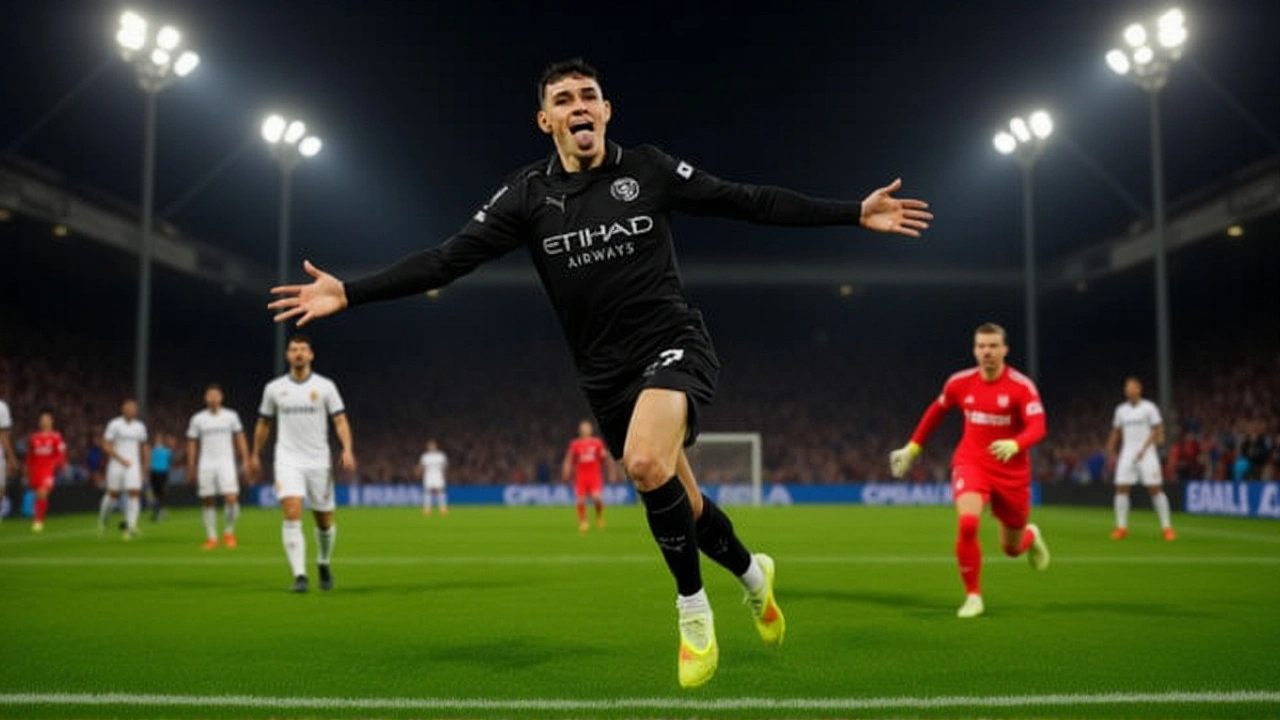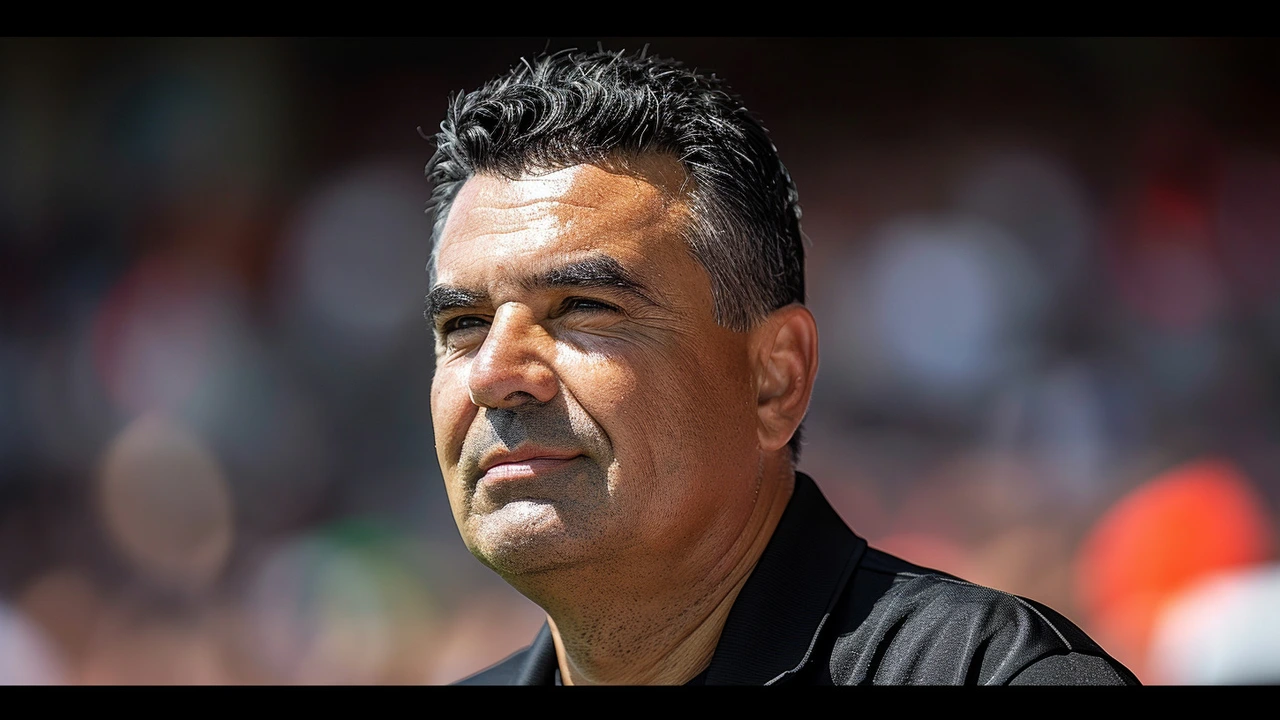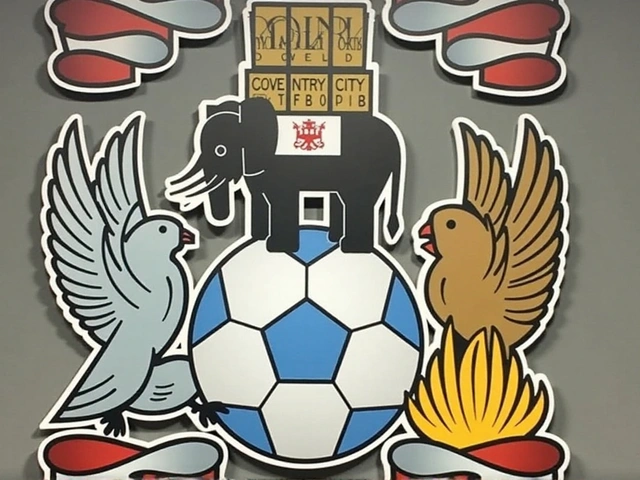In a significant move that has rattled the European football community, UEFA has issued a set of stringent directives to Girona FC and their closely associated club, Manchester City, which will drastically alter the nature of their relationship. This development follows UEFA's ongoing commitment to enforcing its rules concerning club ownership and the movement of players between clubs under the same ownership umbrella.
At the heart of this issue is the complex relationship facilitated by the City Football Group (CFG), a conglomerate that holds stakes in various football clubs globally, including Manchester City and Girona. The recent UEFA document highlights potential conflicts of interest and the need for clearer boundaries between the clubs involved.
According to UEFA, the primary point of contention lies in the transfer dealings between Girona and Manchester City. UEFA's document specifically bars the transfer of players such as Savio and Yan Couto, who were anticipated to bolster Girona's squad after their previous successful stints. This ruling strikes a heavy blow to Girona's strategy for the upcoming season, as these players had become integral to the team's tactical setup.
Further complicating matters, UEFA has set a clear deadline of June 3rd for CFG to reduce its influence over Girona. The options laid out are stark—either sell its shares in Girona to an independent third party or transfer the shares to a blind trust that will be overseen by a panel appointed by UEFA. This directive aims to ensure that Girona operates independently of Manchester City's direct influence, fostering a more competitive and unbiased environment within European competitions.
Should CFG fail to comply with these directives by the stipulated deadline, the consequences are dire. Both clubs face the risk of significant sanctions, including the severe possibility of relegation to lower competitions. For Manchester City, this could mean a step down to the Europa League—a scenario that would have far-reaching consequences not only competitively but also financially.
This intervention by UEFA is not an isolated case, but part of a broader trend in European football where governing bodies are taking a firmer stance on issues of club ownership and integrity in competitions. It reflects growing concerns about the influence of wealthy owners and their potential to skew competition through multiple club ownerships.
The ruling has sparked a wide range of responses from the football community. Fans and sports analysts alike are keenly debating the implications of such governance on the future of European club football. While some applaud UEFA for maintaining the competitive spirit, others criticize it for what they perceive as an overly invasive approach that may stifle the globalization and growth of football clubs.
As the deadline approaches, all eyes will be on Girona and CFG's next moves. How they navigate these directives could serve as a precedent for similar cases in the future. Beyond the immediate implications for Girona and Manchester City, this situation poses broader questions about the nature of ownership in football, the role of financial power in sport, and the balance between business interests and sporting integrity.
This unfolding situation will undoubtedly be a significant case study in sports governance, with potential ripple effects that could reshape some foundational aspects of club football in Europe and beyond.









8 Comments
UEFA just flared its sword at the CFG empire, and the ripples are already shaking the boardrooms of Europe. The obvious motive? To choke the off‑season pipeline that Manchester City has been feeding to its satellite clubs like Girona. By choking that lifeline, UEFA is not just protecting competitive integrity-it’s dismantling a financial stranglehold that has been growing like a weed on a forbidden field. CFG’s multi‑club model has turned player development into a corporate shuffle, where prospects are moved at the drop of a hat to satisfy a parent club’s tactical whims. This isn’t a benign regulation; it’s a calibrated strike designed to force the conglomerate onto a tighter leash. Critics will scream “over‑reach”, but the data shows that clubs under common ownership consistently outperform their peers, skewing the level playing field. Moreover, the forced divestiture deadline of June 3rd feels like a ticking time bomb meant to stir panic and extract concessions. If Girona can’t snap loose from City’s magnetic pull, the Catalan side will scramble for talent in the open market and likely suffer a performance dip. Meanwhile, City Fans will protest the loss of a convenient feeder pipeline, crying foul over what they’ll call “unfair competition law”. The irony is palpable: a club that once championed the free‑market ethos of football now faces regulation that mirrors the very antitrust principles it once mocked. In the broader context, this move could set a precedent that reverberates through the entire network of CFG’s holdings, from Melbourne City to New York City FC. The domino effect may force a re‑evaluation of ownership structures across the continent, potentially prompting other multi‑club owners to pre‑emptively peel apart their portfolios. On a personal note, I view this as the inevitable collapse of an over‑engineered empire built on financial wizardry rather than sporting merit. Fans deserve clubs that earn glory on the pitch, not through secretive share swaps and player piggy‑backing schemes. So brace yourselves: the upcoming transfer window will be a sandbox of uncertainty, and the clubs that adapt will be the true survivors of this regulatory storm. In short, UEFA has pulled the rug, and it’s up to CFG to decide whether to dance or flee.
The sheer audacity of UEFA’s decree feels like a theatrical tragedy unfolding before our very eyes, and I cannot help but feel the collective heart of the sport quivering with dread. This edict does not merely target a handful of transfers; it threatens to unthread the very tapestry of ambition woven by clubs across continents. While the boardroom may applaud the semblance of fairness, the fans are left clutching at the frayed edges of hope, their chants echoing into an uncertain void. In the grand arena of football, where passion should reign supreme, such cold‑blooded intervention smothers the flame of dream‑chasing youths yearning for a stage. One shudders to imagine the silence that may fall over future summer windows, a silence as deafening as a stadium emptied of its loyal chorus.
UEFA’s directive essentially forces City Football Group to create a clear separation between Manchester City and Girona, which means that any future player loan or purchase agreements will need to be conducted on a fully independent basis. The club must either sell its shares to an unrelated third party or place them in a blind trust overseen by a UEFA‑appointed panel, and this must be finalized by June 3rd. For Girona, this will limit their ability to tap into the talent pool that CFG historically supplied, so they’ll need to focus more on scouting and developing homegrown players or seeking deals on the open market. Manchester City, on the other hand, will lose a convenient outlet for developing younger prospects, which could affect their long‑term squad planning. Coaches and sporting directors should start revising their recruitment strategies now, analyzing which positions will be most impacted by the loss of the feeder relationship. Additionally, clubs in similar multi‑ownership situations should monitor this case closely, as UEFA may use it as a template for future governance actions. In practice, this could lead to a more level playing field across Europe, but the transition period will be challenging for both entities involved.
Clearly UEFA is drawing a line in the sand for the CFG conglomerate. This move underscores the need for autonomy in club operations. Girona will have to reinvent its recruitment strategy without the City safety net.
One could argue that UEFA’s intervention is a noble crusade for sporting purity, yet the same hand that writes the rulebook also wields the power to reshape economies. The paradox lies in the fact that while the governing body claims to safeguard competition, it simultaneously dictates the very market dynamics it seeks to protect. It is tempting to romanticize the notion of a fair playing field, but history teaches us that power, when cloaked in righteousness, often serves its own interests. In this chessboard of football, the pieces may be moved not by the merit of their play but by the invisible strings of ownership. Thus, the real question is not whether CFG should be curtailed, but whether the regulators themselves are beyond reproach.
Behold! The very foundations of football governance are being tested by a decree that reeks of both justice and hubris!!! UEFA, in its infinite wisdom, claims to protect the sanctity of competition, yet it imposes a straitjacket upon clubs that have long operated within a network of shared ambition!!! This is more than a mere administrative adjustment; it is a moral crucible forcing the City Football Group to confront the ethical implications of its multi‑club empire!!! By demanding a blind trust or a third‑party sale, UEFA asserts that no entity should hold sway over another, lest the sport be polluted by corporate overreach!!! Let us not forget that the beautiful game thrives on passion, not on the calculated machinations of financial conglomerates!!!
Looks like CFG finally got a reality check.
Listen up, everyone-this is a pivotal moment for all clubs watching the CFG saga, and we must turn it into a learning opportunity rather than a lament. The mandatory divestiture forces a reevaluation of how we structure ownership, and the proactive steps taken now will set a benchmark for transparency across Europe. Stakeholders should seize this chance to draft clear governance frameworks that prevent conflicts of interest, ensuring that future generations experience football governed by fair play, not financial engineering. Let’s collaborate, share best practices, and push the regulatory bodies to codify standards that protect the integrity of the sport for all.